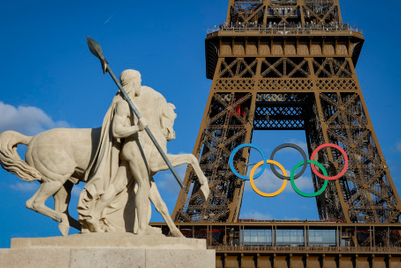
With fewer than 80 days to go until the Tokyo Olympics, uncertainties around the Covid pandemic have put the sponsorship industry in standby mode.
Normally in the build-up, we’d see a raft of sponsors launching Olympic campaigns to capture the anticipation and excitement of participating athletes.
Not this time. The media and PR buzz that preceded the Rio and London Olympics is largely absent as Japanese organisers battle to save the Games, amid "Will it go ahead?" headlines.
The 100-days to go milestone was low key – no big fanfare behind the International Olympic Committee’s global sponsors’ campaigns. Instead, we saw the Tokyo organising committee and British Olympic Association launching films to mark the occasion and a peppering of social posts from Team GB partners.
Brands are treading cautiously, waiting for the IOC and Tokyo Games organisers to press the green light. Still under wraps are meticulously planned campaign activations hitched to the world’s greatest sporting spectacle. Heavyweight Olympic sponsors appear to be waiting quietly in the wings.
Toyota’s “Start your impossible” campaign isn’t yet at full speed. But the global corporate initiative couldn’t be more relevant, so I hope we see some of the “Global Team Toyota” athlete stories come to life.
Just this month, Procter & Gamble launched its “#Leadwithlove” Olympic campaign and “Good is Gold” series (built from its long-running “Thank you, Moms” campaign) to get the emotion building. As ever, it’s one that will continue to pull on those heartstrings and resonate with so many.
On ice
Mounting concerns around the impact of Covid on the Games have forced brands to adapt. Sponsorship campaigns are either on ice or shelved completely due to evolving business demands and challenges created by the pandemic.
Some brands are shifting their investment altogether. Several of the IOC’s worldwide partners may rechannel their financial resources with an eye on the Paris 2024 Games.
The IOC’s global sponsors, however, are in it for the long haul, so will still benefit. We know from long-term investments and association with properties, this is where the real shift in longer-term brand metrics, such as consideration and loyalty, happen – but it takes time.
Other brands are considering reallocating their investment and activities to a domestic level, while the participating nations support their athletes from home, remotely.
Those who filmed Olympic-themed creatives around product launches have faced the dilemma about whether to go live following the Games being postponed. If they hold back the creative for 2021, the product integration will be out of date. Others will feel the creative planned isn’t appropriate amid the Covid fallout.
Some athletes earmarked to feature in campaigns won’t now have qualified for the Games, rendering the content out of date and unusable.
Opportunities lie ahead
The upside is that brands have shown agility and used sponsorship assets in different ways throughout the pandemic, such as focusing on employee engagement, health and wellbeing platforms, using ambassadors to host webinars and launch physical challenges, and offering clients hospitality-at-home packages for televised events.
The ability of brands and athletes to show flexibility is more important than ever to leverage the Olympic opportunity. With the IOC’s clean venues policy and protection over Olympic marks, brands already have to work harder to be seen.
These factors are all affecting what we’re seeing now. But they do bring opportunities.
The British Olympic Association has already seen some benefit from the postponed Games. It recently signed sponsors GoDaddy and Yoplait. And sponsors get the added benefit of the Beijing 2022 Winter Olympics being much closer to the Summer Games.
We could see a big bang of brand activity around the Tokyo Games – more so than ever before, as it will be almost entirely a televised mega-event due to the lack of international visitors.
With public interest in the Olympics spiking about three weeks out, brands who are bold and brave, with humorous or emotive creatives, are likely to gain the most. Diversity and inclusion, a celebration of local culture and global teams uniting at a Covid-affected Olympics could be key themes. Innovative digital campaigns using athletes are also likely to engage the imagination of the public.
I’m optimistic that those athletes, teams and brands get to write their Olympic story. It might look a little different, but it’s the tonic we all desperately need this year.
Victoria Chew is a partner at Fuse


.jpg&h=334&w=500&q=100&v=20250320&c=1)


.png&h=334&w=500&q=100&v=20250320&c=1)





.png&h=334&w=500&q=100&v=20250320&c=1)




.png&h=268&w=401&q=100&v=20250320&c=1)


